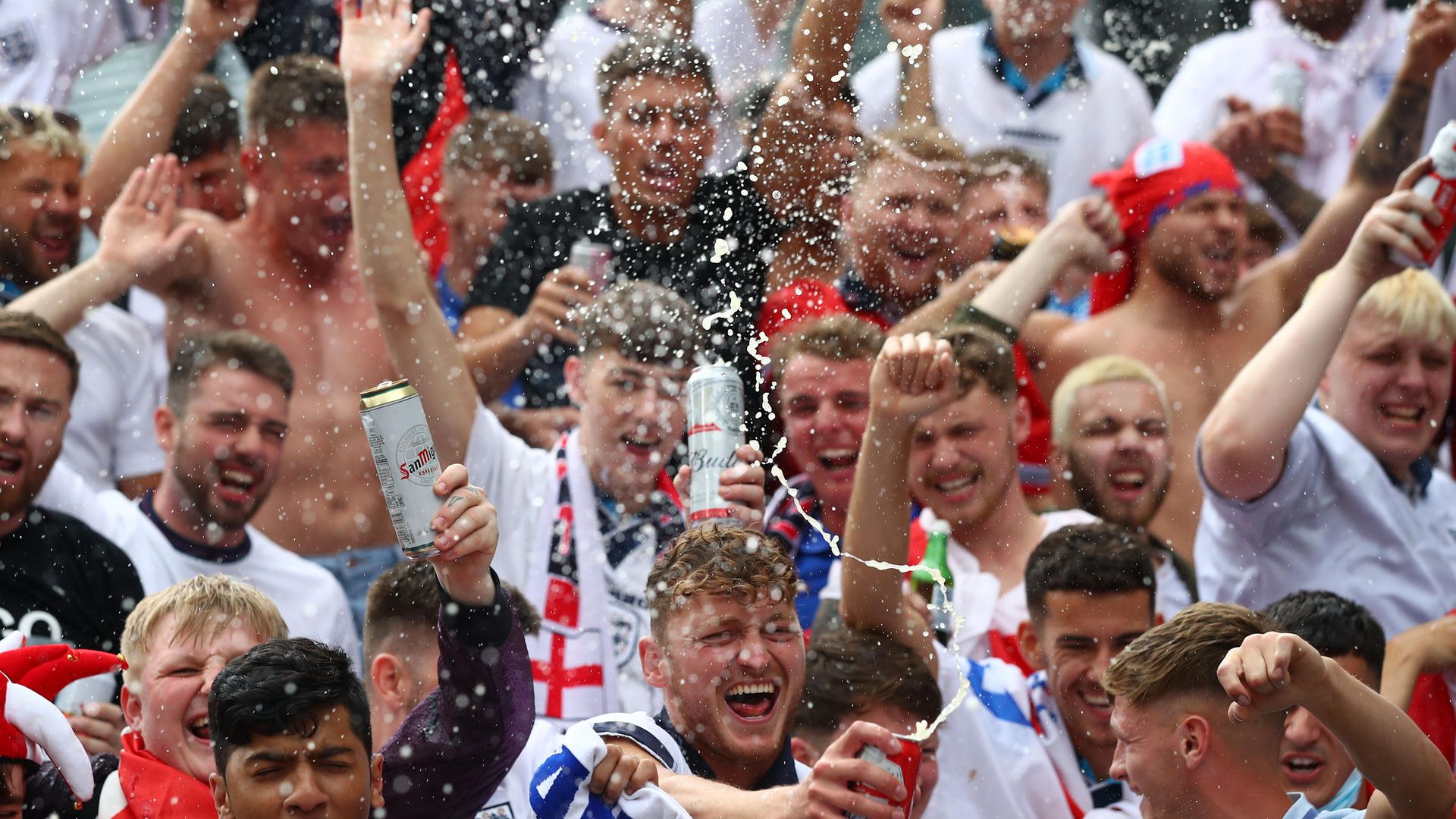
Instead of watching England in the Euros, WILL SELF went walking around London… and noticed something interesting about his fellow football sceptics
Errol over the park coaches local lads in football – most of them black British. He’s pretty successful, and has placed at least 20 over the past decade or so as juniors with top clubs. Before my Jack Russell terrier became too old, Errol would marvel at his dribbling skills: front paws clasping the ball under his muzzle, the doughty fellow would propel his muscled little body about the pitch with his rear legs as if he were a canine version of the World Cup Willie toy I so loved as a child. These little figurines of the famous 1966 England team mascot had a ball bearing in their base, so that with one good flick, the five-year-old-that-I-was could propel the diminutive lion-human footballing chimera clear across the tabletop pitch.
Look, I understand that it’s rubbing salt in England fans’ wounds to speak of the last time their team won a significant international competition – but what can I say? I like salt… and rubbing – while I’ve no great affection for either the beautiful game or ugly English ethno-nationalism. Errol thought my dog’s only real handicap when it came to professional-level football was his inability to understand which end of the pitch he should be heading for, my feeling is that all too many human fans can’t grasp a yet more important – if equally binary – distinction: that between right and wrong.
But anyway, I can’t really claim that my disaffection from being a football spectator is entirely a matter of principle; I also mistrust anyone who takes games too seriously – for I fear it means they don’t take life seriously enough. There’s this, and also my visceral repulsion from crowds of any sort, one that’s been intensified by the pandemic. Which is why, first on the Wednesday evening he England played Denmark in the semi-final, and then on the Sunday when they met Italy in the final, my youngest and I chose to walk across town rather than watch the matches. You might’ve thought we’d be bored by now of unnaturally empty streets and voided parks – but not a bit of it: I’ve lived in the smoggy city, its roadways groaning with packs of petrol vehicles, for almost six decades, and it’ll take more than a year or so of comparatively calmer civic spaces for me to yearn for the ‘old normal’.
Anyway, on the evening of the semi, it was sunny, and while we could hear the bestial howls and barks carrying anguish and joy from the packed pubs and bars we passed, there seemed little of the edginess we experienced on the night of the final. Perhaps it was because during the first match we walked from Spitalfields in the East End to the Oval in the south, whereas for the second we went the other way. The City of London was pretty quiet, but just before half-time we found ourselves nearing the famous Petticoat Lane, and suddenly the streets were full of young folk. And not just any young folk: these ones seemed on a mission, scampering hither and thither, fusing into little gaggles and then fissioning – many of them talking on mobile phones.
We had the distinct impression that something was about to happen: an air of tense pre-pleasurableness. Was this the warm-up to some rave or otherwise musical and corybantic happening?
It seemed a little risqué not just because of the coronavirus restrictions still in place, but also – and this is a statement of fact, not prejudice – because all of these football-indifferent revellers, so far as we could see, were black. I remarked on this to my son as we headed towards Brick Lane past further pubs full of bellowing fans, and he made the obvious point about immigrant communities and the cricket (or indeed football) test. A supposition confirmed when we reached the heart of the East End’s Bengali community and found the numerous restaurants empty of their – usually touristic – clientele, while the local British Asian kids were all out on the streets.
I make no great claims for these sociological speculations, worked up out of a couple of dribbling field trips across the capital, but as in the wake of England’s inevitable defeat (because that’s what self-pitying masochists most desire: to be beaten) the extent to which the games had provoked racism online and IRW emerged, I thought of these quite possibly third-, fourth- and even fifth-generation English who felt no allegiance whatsoever to Gareth Southgate’s social justice warriors– sorry! I mean player. In Brick Lane, one lad had shouted to a group of others: “Do you know the score?” And they’d shouted back: “Like you care!”
And I thought of also of Errol and his trainees: yes, many top Premier League footballers come from the minority ethnic communities, and some reach the national side where they have the opportunity to earn either hysterical adulation or vicious vituperation, pretty much by chance.
But what they comfort their liberal white spectators in is a delusion of inclusion – the reality, as ever, remains out on the streets.
Warning: Illegal string offset 'link_id' in /mnt/storage/stage/www/wp-includes/bookmark.php on line 357
Notice: Trying to get property 'link_id' of non-object in /mnt/storage/stage/www/wp-includes/bookmark.php on line 37







